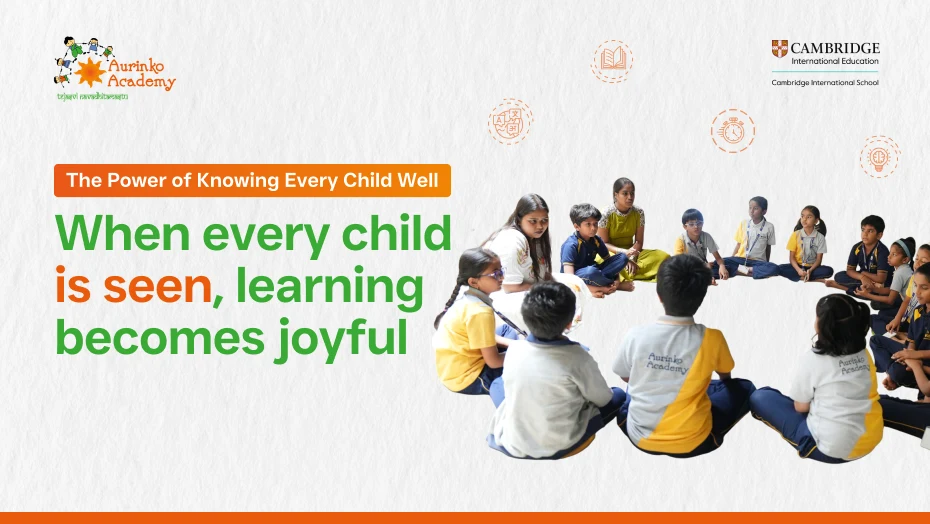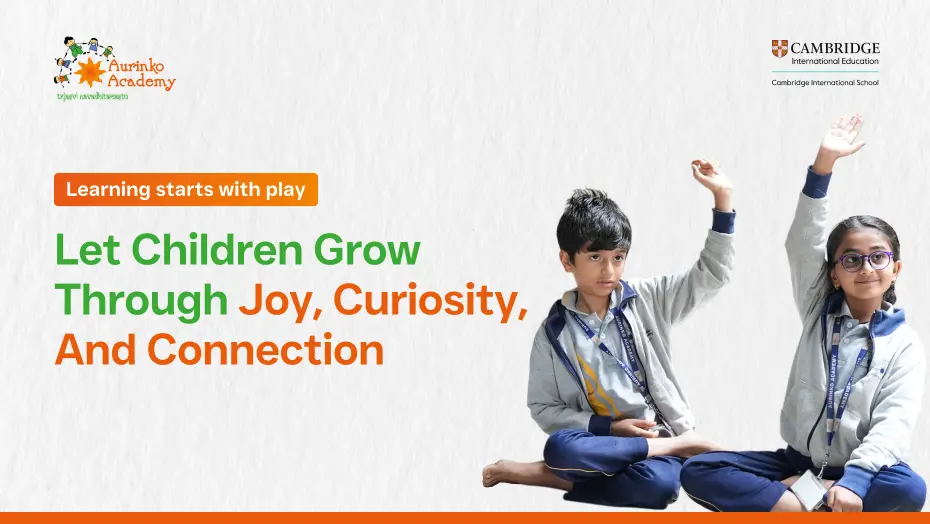In today’s world, doing well in school is no longer just about solving math problems or remembering facts. It’s about understanding people, handling stress, and responding to situations with empathy. More and more schools are realising that emotional intelligence is just as important as academic learning. At progressive schools in Bangalore, there is a growing focus on helping children become more emotionally aware and socially responsible.
Emotional intelligence education Bangalore is not just a trend. It is a vital part of preparing students for real life. It helps them manage their feelings, connect with others, and make better choices. This shift is making classrooms more inclusive, thoughtful, and understanding places to learn and grow.
Understanding Emotional Intelligence
Emotional intelligence means being able to understand your feelings, handle them in a healthy way, and also recognise what others are feeling. It’s about staying calm under pressure, talking things out instead of getting angry, and knowing how to support others when they’re having a tough day.
There are four key parts to emotional intelligence:
- Recognising emotions: Noticing how you feel and how others are feeling through words, body language, or expressions.
- Using emotions wisely: Emotions help us make decisions. Learning to listen to those signals can guide us in daily life.
- Understanding emotions: Knowing why you or someone else is upset, happy, or worried helps you respond in the right way.
- Managing emotions: This means staying in control, even when you’re frustrated or excited, and reacting in a respectful, thoughtful manner.
Unlike subjects like science or history, emotional intelligence is not something you learn from a textbook. But its impact shows up everywhere, from friendships and family to teamwork and handling failure.

Why Emotional Intelligence Is Essential For Students
Here’s why developing emotional intelligence is essential for every student:
- It builds emotional resilience.
School life can be overwhelming. From academic pressure to social challenges, students often face tough moments. When they learn how to name their feelings and deal with them calmly, they bounce back faster. Instead of breaking down, they learn to pause, reflect, and try again.
- It improves academic performance
Children with high emotional intelligence often perform better in class. They stay motivated, manage exam stress, and concentrate better. These students participate actively in discussions and group activities, helping them understand subjects more deeply. This is why many schools focused on emotional intelligence education Bangalore are seeing improved academic results.
- It encourages empathy and kindness
A child who can notice when a classmate feels left out or upset is more likely to reach out and help. This kind of awareness comes from learning how to read emotions. Over time, such behavior leads to a classroom where everyone feels safe, heard, and supported. That’s the power of building empathy in classrooms.
- It promotes better decision-making.
Students face choices every day, like how to react to teasing, when to speak up, or how to handle peer pressure. Emotionally intelligent students think before they act. They consider the consequences of their actions and choose wisely.
- It boosts self-esteem
When children understand their emotions, they feel more in control. This builds confidence. They learn that feeling nervous or sad is normal and also that they can handle it. This inner strength makes them less likely to give in to peer pressure or feel overwhelmed.
- It strengthens friendships and teamwork.
Being able to listen, share, and resolve conflicts calmly makes it easier to make friends. In group activities, emotionally aware students become team players. They help others, value different opinions, and create a positive space where everyone can grow. This is why many educators are focusing on emotional intelligence for kids as part of everyday learning.
Benefits of Emotional Intelligence Beyond School
Learning emotional intelligence in school doesn’t just help students now. It also shapes their entire future.
- Lays the foundation for leadership.
Emotionally aware students often grow into thoughtful, confident leaders. They know how to listen, support, and guide others. These early experiences prepare them for leadership roles later in life.
- Supports career growth
Today, employers value team players and empathetic communicators. Whether it’s handling client issues or working in a team, people with emotional intelligence tend to do better in professional environments. This is why schools that focus on social-emotional learning are helping their students get ready for life beyond academics.
- Leads to healthier relationships
As children grow into adults, emotional intelligence helps them build strong, lasting relationships at home, at work, and with friends. They communicate clearly, manage disagreements with care, and build meaningful bonds.
Tips to Foster Emotional Intelligence in Schools

To help students grow emotionally, schools need to take simple but intentional steps.
- Bringing emotional learning into daily lessons
Activities like storytelling, group reflection, and role-play sessions allow students to explore emotions in a safe space. These sessions are a key part of how schools can integrate how to teach emotional intelligence to children in India into their curriculum.
- Practicing mindfulness and calmness
Short breathing exercises or a few minutes of quiet reflection each day can make a big difference. Journaling is another simple way to help students express their feelings and notice patterns over time.
- Encouraging collaboration and kindness
Group projects help students understand one another. Working in teams teaches them to listen, adjust, and respect others’ feelings. This nurtures empathy, one of the most important aspects of emotional intelligence for kids.
- Teaching how to handle conflicts
Disagreements are natural. What matters is how students respond. Simple role-playing exercises help them practice calm responses and respectful communication. Over time, they learn to solve problems instead of avoiding them.
How Teachers and Parents Can Nurture Emotional Growth
Children thrive when both teachers and parents support their emotional development. Together, they build a strong foundation that lasts a lifetime.
This shared approach is essential to emotional intelligence education Bangalore, helping children build self-awareness, empathy, and confidence in every area of life.
How Teachers Can Support Emotional Intelligence:
- Create a safe space where students feel heard
- Encourage discussions about emotions
- Model empathy and patience through their own behavior
- Guide students through challenges with positive feedback
- Reinforce resilience and kindness every day
How Parents Can Support Emotional Intelligence at Home:
- Talk about feelings regularly in a calm and open way
- Teach children to pause and breathe when upset
- Help them see things from another person’s point of view
- Share their own emotions to show it’s okay to feel
- Support the school’s emotional learning efforts at home
Conclusion
Emotional intelligence is no longer a choice, but it’s essential. When students grow up knowing how to handle their feelings, understand others, and make kind, thoughtful choices, they are better prepared for the real world. It shapes their success in school, work, and relationships.At Aurinko Academy, we believe that education must include emotional growth. That’s why we focus not just on academics but on social-emotional learning Bangalore and nurturing every child’s heart and mind. Our school offers a warm, supportive space for children to build confidence, compassion, and real-world readiness.






